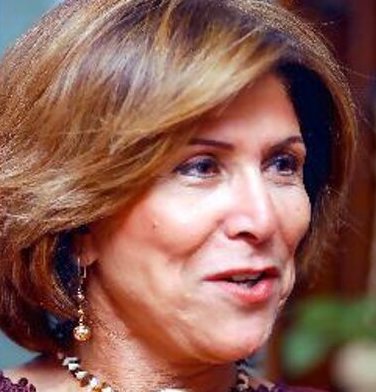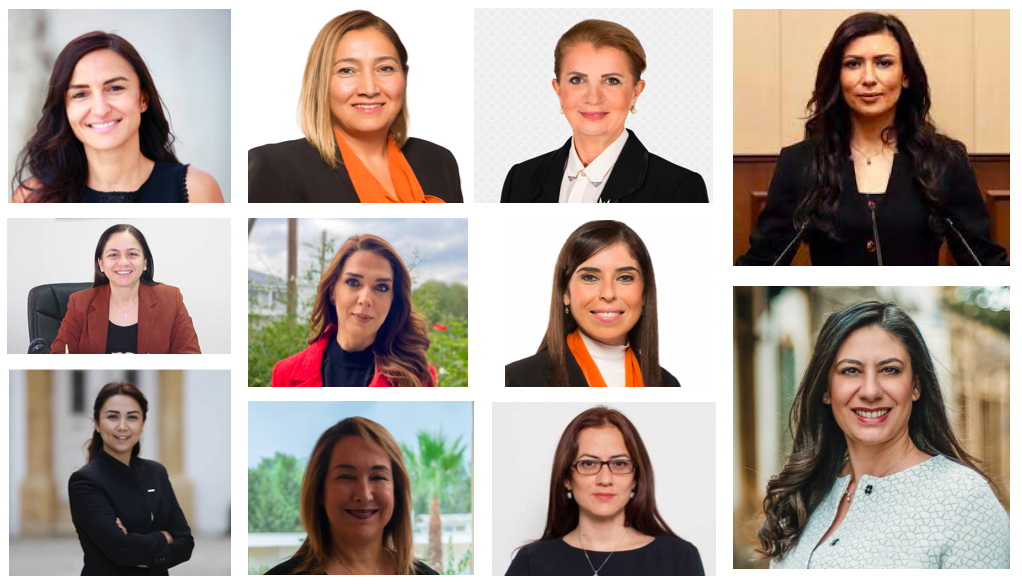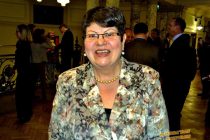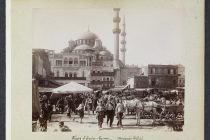Eleven women were elected as Members of Parliament (MP) in Sunday’s General Election in the Turkish Republic of North Cyprus (TRNC), a record number for the small Eastern Mediterranean country.
While that is welcome news for gender equality campaigners in North Cyprus, at 22% of the total number of MPs, there is still some way to go before full parity is reached. Yet the TRNC is making steady progress, doing better than many neighbouring countries including Turkey and South Cyprus.
There are fifty seats in the TRNC Parliament. Sunday’s General Election saw 131 women contest these seats alongside 272 men. However, with most female candidates placed lower down their party’s pegging order on the ballot sheet, their chances of electoral success are pretty low.
This was evidenced again on Sunday when just eleven women were elected – two more than the last Parliament.
Record-breaking 11 women in the TRNC Parliament
North Cyprus General Election on 23 January 2022 resulted in history being made, as eleven women were elected to the Turkish Cypriot national assembly. The eleven are:
- Resmiye Canaltay (UBP)
- İzlem Gürçağ (UBP)
- Yasemin Öztürk (UBP)
- Sıla Usar İncirli (CTP)
- Doğuş Derya (CTP)
- Filiz Besim (CTP)
- Fazilet Özdenefe (CTP)
- Şifa Çolakoğlu (CTP)
- Fide Kürşat (CTP)
- Ayşegül Baybars (HP)
- Jale Refik Rogers (HP)
TRNC parties and female representation
With one third of its MPs now women, the left-wing Republican Turkish Party (CTP) has the best female representation of the five parties in the TRNC Parliament.
The party with the second highest number of female MPs is the ruling National Unity Party’s (UBP), which has three of its 24 MPs.
The remaining two female MPs are from the People’s Party (HP). As it has three MPs, HP has a 2:1 ratio in favour of women in its parliamentary party.
Two parliamentary parties, the Democrat Party (DP) and Rebirth Party (YDP), have no female MPs among their five MPs.
TRNC better than South Cyprus, Turkey and Lebanon for female representation
When it comes to gender equality in politics, the TRNC lags behind many countries in the world including Sweden, Mexico and Bolivia, which have all achieved, or are close to, gender parity in their parliaments.

The UK has some way to go before it has a 50:50 split of male to female MPs. The 2019 General Election saw 220 women elected, accounting for 34% of all MPs in the House of Commons, up from 208 (32%) in 2017.
In the TRNC’s Eastern Mediterranean neighbourhood, Egypt is the best for the ratio of male to female MPs. In 2021, General Sisi boosted the number of women lawmakers with appointments, resulting in 162 of a possible 596 MPs – or 27% – being female.
Israel is next best. Currently women account for a quarter of all 120 MPs in the Knesset.
In Lebanon, just six women from a possible 86 were elected in the 2018 election, equating to less than 5% of the country’s total of 128 MPs.
The TRNC can also take pride in the fact that it is doing better than its two closest neighbours, South Cyprus and Turkey.
Only eight women were elected as MPs to the Greek Cypriot House of Representatives in May 2021, as female representation dropped from 17% in 2016 to 14% last year.
North Cyprus also has a better male to female ratio than Turkey, where just 103 of 600 MPs, or 17%, in the Grand National Assembly are women. This is despite Turkey being among the first in the world to give women the right to vote and stand as parliamentarians, with history made in 1935 when 17 women entered Turkey’s Grand National Assembly as MPs for the first time.
Best country in the world Parliamentary gender equality
The best place in the world for female representation is Rwanda, where 61% of its MPs are women. The next two best countries are Cuba, with 53% of its national assembly female, and United Arab Emirates, with 50% of its parliamentarians women.
Main image, (left to right): top row: Jale Refik Rogers, Yasemin Öztürk, Resmiye Canaltay, & Fazilet Özdenefe; middle row: Şifa Çolakoğlu, Fide Kürşat, İzlem Gürçağ, & Sıla Usar İncirli, bottom row: Ayşegül Baybars, Filiz Besim, & Doğuş Derya.




